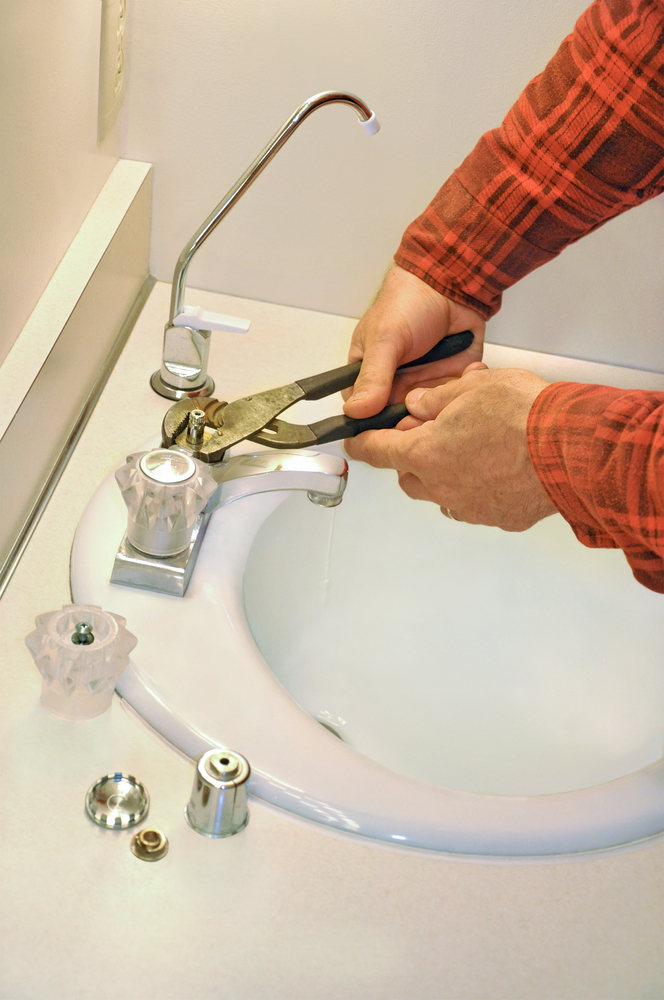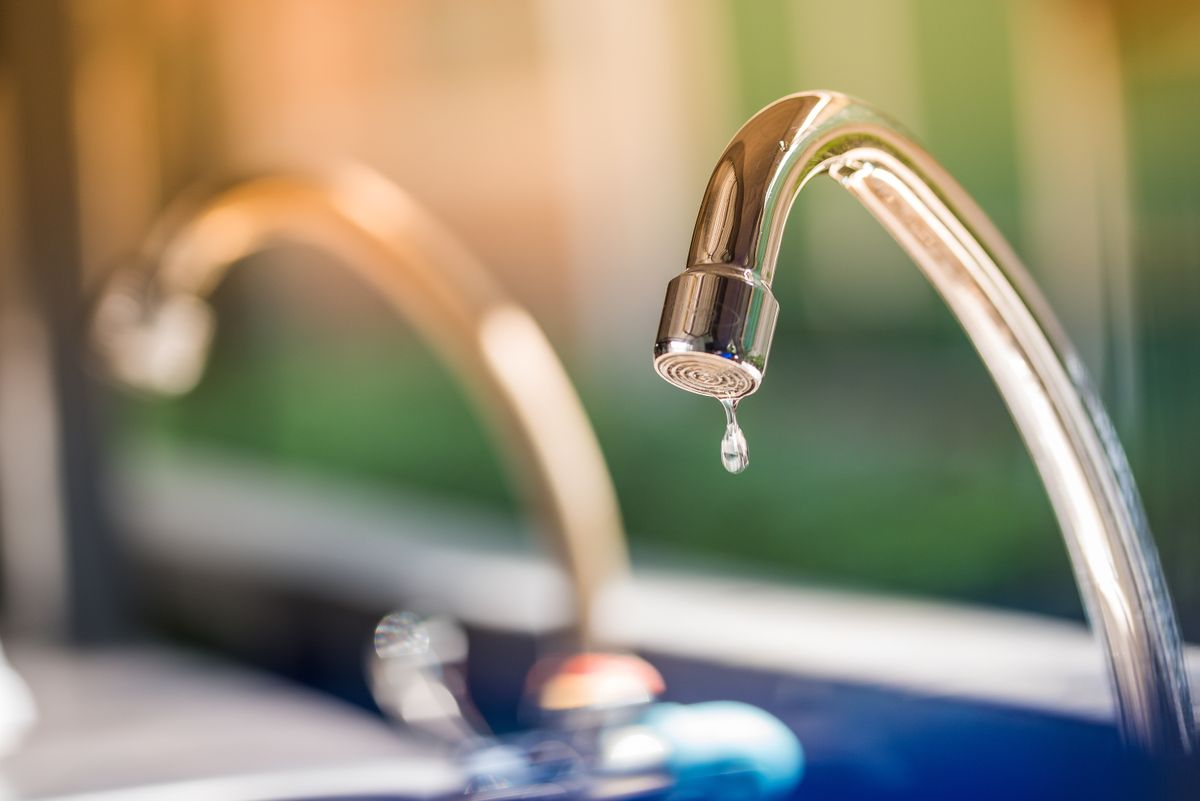Discovering the Importance of Correcting a Malfunctioning Faucet
Discovering the Importance of Correcting a Malfunctioning Faucet
Blog Article
Just about everyone has their own unique opinion when it comes to 4 Common Reasons for a Leaky Faucet.

Trickling taps might look like a minor trouble, yet their effect exceeds just the aggravation of the audio. From drainage to sustaining unneeded economic prices and wellness threats, neglecting a leaking tap can cause different consequences. In this short article, we'll delve into why it's crucial to resolve this common house issue without delay and properly.
Wastage of Water
Ecological Impact
Leaking faucets add substantially to water waste. According to the Environmental Protection Agency (EPA), a solitary faucet trickling at one drip per secondly can lose greater than 3,000 gallons of water annually. This not just pressures water resources but additionally affects environments and wild animals depending on them.
Step-by-Step Overview to Dealing With a Dripping Tap
Devices Called for
Prior to trying to take care of a dripping tap, collect the needed tools, including an adjustable wrench, screwdrivers, substitute components (such as washers or cartridges), and plumber's tape.
Common Tap Issues and Their Solutions
Recognize the kind of faucet and the details concern triggering the drip. Common troubles include worn-out washing machines, corroded shutoff seats, or defective O-rings. Describe maker instructions or on the internet tutorials for detailed guidance on fixings.
Financial Prices
Increased Water Expenses
Past the environmental effect, trickling faucets can pump up water costs substantially. The collected wastefulness over time equates right into greater utility costs, which might have been stayed clear of with prompt repairs.
Prospective Residential Or Commercial Property Damages
Additionally, prolonged trickling can cause harm to fixtures and surfaces surrounding the tap. Water accumulation can create staining, deterioration, and even architectural concerns if left ignored, causing additional repair service costs.
Health and wellness Problems
Mold and Mildew Development
The constant existence of dampness from a dripping faucet creates an excellent environment for mold and mildew development. These fungis not only jeopardize interior air high quality but likewise pose health dangers, specifically for individuals with respiratory problems or allergies.
Waterborne Diseases
Stagnant water in dripping taps can become a breeding place for bacteria and various other virus, enhancing the risk of waterborne diseases. Pollutants such as Legionella microorganisms grow in stagnant water, potentially causing severe ailments when consumed or breathed in.
Do it yourself vs. Professional Repair
Advantages and disadvantages of Do It Yourself Fixing
While some may attempt to fix a trickling tap themselves, do it yourself repair services include their own collection of obstacles. Without appropriate understanding and tools, do it yourself attempts can exacerbate the problem or result in insufficient repair services, extending the trouble.
Benefits of Hiring a Specialist Plumber
Hiring a specialist plumber guarantees that the underlying cause of the leaking tap is dealt with properly. Plumbing professionals have the proficiency and devices to identify and repair faucet issues effectively, saving time and reducing the risk of further damage.
Ecological Obligation
Private Payment to Conservation
Taking obligation for dealing with trickling taps lines up with wider efforts toward water conservation and ecological sustainability. Every person's actions collectively make a significant influence on protecting valuable sources.
Sustainable Living Practices
By prioritizing punctual repair work and adopting water-saving behaviors, people contribute to lasting living practices that profit both present and future generations.
Preventive Measures
Routine Maintenance Tips
To avoid dripping faucets, execute routine upkeep such as cleaning aerators, examining for leaks, and changing worn-out parts without delay. Furthermore, think about installing water-saving devices or upgrading to much more reliable components.
Value of Prompt Fixes
Addressing leaking taps as quickly as they're seen stops additional water wastage and potential damage, inevitably conserving both water and cash in the long run.
Impact on Property Value
Perception of Well-Maintained Home
Preserving a building in good condition, consisting of attending to maintenance issues like dripping taps, improves its viewed value and worth amongst potential customers or occupants.
Influence on Resale Worth
Features with well-kept plumbing fixtures, consisting of faucets, command higher resale worths in the real estate market. Resolving leaking taps can contribute to a favorable impression during property assessments and negotiations.
Final thought
Resolving a dripping faucet exceeds plain comfort; it's an essential step toward saving water, minimizing economic prices, and safeguarding health and wellness and residential property. Whether via do it yourself fixings or specialist aid, acting to repair leaking faucets is a small yet impactful means to advertise accountable stewardship of resources and contribute to a healthier, more lasting future.
Most Common Reasons for a Leaky Faucet and How to Stop the Drip
Whether it’s your kitchen faucet leaking or a bathroom faucet leaking, one leaky faucet can waste anywhere from three to 30 gallons of water every single day. If the constant drip-drip-drip doesn’t get your attention, your water bill will. The good news is that, by following a few simple steps, chances are pretty good you can fix the problem yourself.
Why is it dripping?
Before you start taking things apart, let’s break down some of the most common causes of a leaky faucet.
Bad O-ring.
A cartridge is a valve that controls the flow of water into the faucet spout. On cartridge faucets there’s an O-ring—the little disc attached to the stem screw that holds the faucet handle in place. If it’s loose or worn-out, it can cause your sink handle to leak. Of course, the cartridge itself could be worn out. If that’s the case, make sure you replace it with the exact same kind.
Corroded valve seat.
The valve seat connects the faucet and the spout. If the leak seems to be coming from the spout, it might be because a buildup of water sediment has corroded the valve seat.
Worn-out washers or seals.
A leaky spout could be caused by a bad washer that rests against the valve seat. It’s just a matter of time before friction takes its toll. It could also be the wrong size washer or one that’s been installed incorrectly. Water sediments can also corrode inlet and outlet seals.
Water pressure.
If the faucet only drips now and then, or when you turn the handles a certain way, you should probably check your home’s water pressure.
Loose or broken parts.
The adjusting ring and packing nuts in the stream screw can become loose over time, causing your sink handle to leak. Try tightening or replacing the packing nut. If the leak is coming from the pipes underneath the sink, you probably have a broken pipe or fitting. If that’s the case, you should definitely call a plumber.
Know your faucet.
Faucets come in a variety of types. Each one has its own assembly—and its own possible causes of leaks. Learning about the four most common kinds of faucets will help you know how to take them apart and make any repairs.
How to stop a leaky faucet
Fixing that leaky faucet doesn’t have to take a lot of time, money, or expertise. It’s usually a simple matter of replacing a worn-out washer or gasket, a loose O ring, or another part. Chances are really good you can do this yourself if you follow these simple steps.
Shut off the water.
Before you tackle the faucet, cut off the water supply to the sink. There should be one valve for hot and one for cold. Hand-turn them clockwise with your hands till they close. If there are no valves under the sink, head to the basement and shut off the main water supply to the house. Then turn on the faucet until it empties out the water that’s still in the line and you’re ready to start. It’s a good idea to cover the sink drain with a plug or a rag so you don’t lose any small pieces and parts while you’re working.

I hope you enjoyed reading our part about Leaky Faucets: Why They Happen & What to Do About Them. Thanks a ton for finding the time to read through our short article. If you please take the opportunity to promote this post if you liked it. I recognize the value of your readership.
Report this page